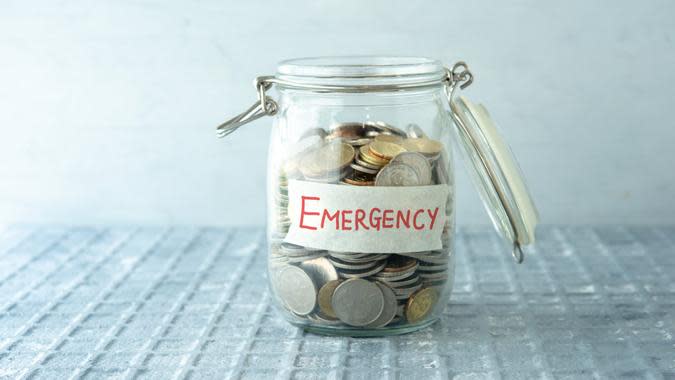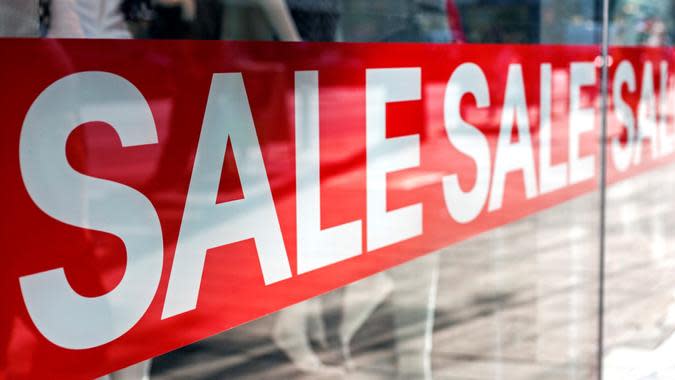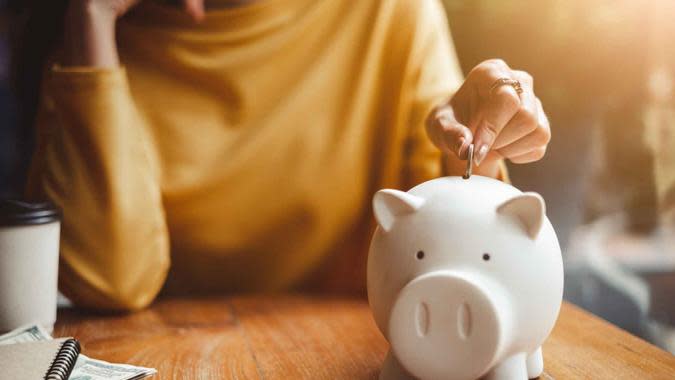I’m a Financial Expert: Here Are the 6 Most Common Savings Mistakes People Make

You’ve heard it over and over: “It’s important to save.” However, many people don’t take it to heart. According to a recent GOBankingRates survey, 36% of people have $100 or less in their savings accounts.
Learn More: Warren Buffett: 10 Rules for Young People Who Want to Get Rich
Check Out: 5 Unusual Ways To Make Extra Money (That Actually Work)
“We all say we will save what is left over each month,” said Steve Azoury, ChFC and owner of Azoury Financial. “However, that doesn’t always happen, as we find things to purchase that we don’t really need. Saving is important, so you can continue affording essentials, as well as enjoy life.”
If saving for a rainy day just isn’t as appealing as what you can spend your money on right now, take a look at the most common savings mistakes and find out what you can do differently.

Buying Things They Cannot Afford
“When their spending is out of control, they’re only able to save very little — or sometimes nothing at all,” said Azoury.
What To Do Instead
“Prior to making purchases, do the math,” he said. “If a purchase doesn’t fit into your budget, you shouldn’t buy it. Consider waiting a day before making a purchase to determine if you really need the item or not. Oftentimes, after waiting a day or two, you’ll realize it was an impulsive ‘want’ and something you don’t really ‘need.'”
Find Out: I’m a Self-Made Millionaire: Here’s My 4-Step Payday Routine
Read Next: How To Get $340 Per Year in Cash Back on Gas and Other Things You Already Buy

Not Having an Emergency Fund in Place
Azoury said that financial emergencies can decimate your budget. “You shouldn’t have to borrow money for unexpected financial costs,” he said.
What To Do Instead
“You should try to save 15% to 20% of your annual income,” explained Azoury. “Some of those savings should be allocated into an emergency fund. Your emergency fund should have three to six months’ worth of monthly expenses saved. This should be plenty enough to cover an emergency.”
Trending Now: Check Your $2 Bills — They Could Be Worth a Ton

‘Spaving’
Andrea Woroch, consumer and money-saving expert, said that spaving is the act of spending money to save money.
“But if you’re buying something just because it’s on sale, you’re still spending money you shouldn’t, and those dollars can go further in reaching other important goals,” she said.
What To Do Instead
Woroch said to identify your spaving triggers and find ways to combat them.
“For example, if you can’t resist a sale, turn off push notifications in deal apps and unsubscribe from store newsletters using Unroll Me,” she explained. “If you shop to manage your emotions — to make yourself feel better after a fight with a partner or to beat boredom — find other ways to deal with your feelings, like going for a walk, calling a friend to vent or picking up a hobby.”

Leaving Savings Sitting in a Traditional Account
Woroch said that this is one of the most common savings mistakes.
“Many people open a savings account at the bank where they have a checking account, but leaving your savings sitting in a traditional savings account will make you miss out on free money,” Woroch said. “These accounts offer 0.46% APY on average, and some banks pay much less than that.”
What To Do Instead
“You can earn over 5% from a variety of high-yield online savings accounts,” said Woroch.
She suggested finding an account that compounds interest daily, as well, to build your savings even faster.

Focusing on Debt Payoff Before Saving
While Woroch acknowledged that paying off debt is important, she said building your savings at the same time is crucial.
“Keeping cash in an emergency fund will keep you out of debt in the future — this gives you a cash cushion to cover unexpected bills or help you get through a tough financial time,” said Woroch. “Without this cash reserve, you will dig yourself right back into debt.”
What To Do Instead
Woroch said that while you’re working on building up your savings, consider getting a balance transfer card, some of which offer up to 21 months of no interest.
“This will buy you some time to put more towards savings without worrying about interest fees growing and derailing your debt pay-off goals,” she said. “Always compare balance transfer cards… to find the best one [for] your financial needs and credit rating, and pay attention to any potential fees. Some charge a balance transfer fee of 3% to 5%, but that could be less than what you would pay in interest on the entire balance with your original credit card.”
Be Aware: How Much Does the Average Middle-Class Person Have in Savings?

Saving Last
“If you wait to save after you pay your bills and cover day-to-day purchases, you will likely run out of money quickly,” Woroch said.
What To Do Instead
“Treat savings like any other bill, and pay yourself first, ensuring you have enough to cover at least your most important bills,” said Woroch. “You will learn to live on less and adjust your budget.”
Survey methodology: GOBankingRates surveyed 1,063 Americans aged 18 and older from across the country between Nov. 27 and Nov. 29, 2023, asking twenty-two different questions: (1) What category best describes your current financial institution?; (2) Have you considered changing banks within the past year?; (3) If you have considered changing banks in the past year, were any of the following factors? (select all that apply); (4) Which feature, perk, or other offering is most important to you when opening an account with a new institution?; (5) Are you currently satisfied with all your banking products and services offered by your bank/credit union?; (6) Would you ever have different types of accounts across multiple banks? (i.e. checking at Chase, but savings at TD Bank); (7) What is your most preferred method of banking?; (8) Which of the following is the biggest factor of you staying with your current bank?; (9) Which of the following bank accounts do you currently use/have open? (Select all that apply); (10) How much is the minimum balance you keep in your checking account?; (11) How much do you currently have in your savings account?; (12) What amount of a sign up bonus would make you consider switching banks?; (13) Have you considered using any app-only banking platforms (aka neobanks) in the past year? (e.g. Current, Chime, Dave, etc.); (14) How important is it to you for your bank to be affiliated with a crypto exchange/platform?; (15) In the past year, how often have you written a physical check?; (16) When was the last time you visited your bank in-person?; (17) Why would you choose to visit your bank in-person? (Select all that apply); (18) Have you had an overdraft on your checking account in the past year?; (19) How much do you trust your current bank to act in your best interest?; (20) How much do you trust your current bank to protect your private information?; (21) Do you trust regional banks more than national banks?; and (22) How much cash do you keep at home?. GOBankingRates used PureSpectrum’s survey platform to conduct the poll.
More From GOBankingRates
I Earn Over $30K a Week in Semi-Passive Income on Amazon - Here's How
This is One of the Best Ways to Boost Your Retirement Savings in 2024
Here's How to Add $200 to Your Wallet -- Just For Banking Like You Normally Would
This article originally appeared on GOBankingRates.com: I’m a Financial Expert: Here Are the 6 Most Common Savings Mistakes People Make
